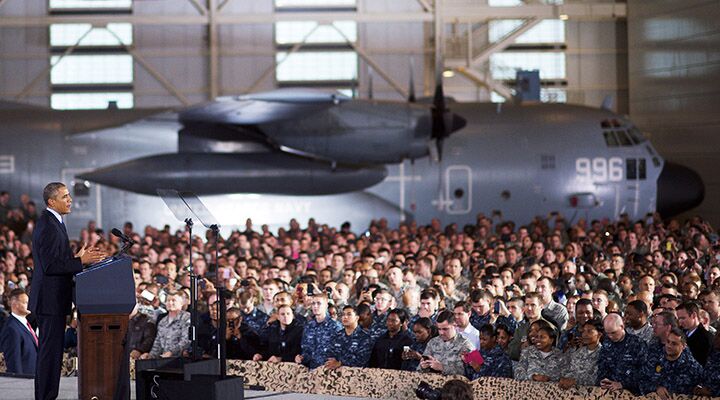
Afghanistan: A Power Void That Needs Filling
As the United States withdraws its troops from Afghanistan this year, other powers will vie to fill the void. China, the Islamic State and Iran all have a keen interest in Afghanistan, and may soon assert themselves in the region.
Why is China interested? Ties between Afghanistan and China have rapidly strengthened over the last four years. In 2011, China won a bid to develop an oil field in Amu Darya in northern Afghanistan. In 2012, China started training some of Afghanistan’s police officers and diplomats. In December 2014, a Taliban delegation visited Beijing following the new Afghan president’s visit there—his first visit abroad. Before 2011, these two had scarce contact. The uptick in relations show signs of a changing relationship.
David Sedney, a former U.S. diplomat in Beijing and Kabul, said of the Chinese, “In a certain sense, they’re competing with the U.S. for success in Afghanistan. They want to prove they can do it better.”
Beijing’s $327 million pledge to aid Kabul through 2017, the Taliban’s acknowledgement of contacting China, and Chinese security officials’ visits to Kabul last year also demonstrate a growing relationship.
The Wall Street Journal pointed to the rising unrest in China’s Muslim northwest as one determining factor. China is worried that the unrest in Afghanistan and Pakistan will affect China’s Muslim population. This fear has only grown as the United States backs out of Afghanistan. In addition, China possesses funds that Afghanistan needs; a working relationship with the main parties involved in peace initiatives within Afghanistan, including Russia and Iran; and a desire to stop Islamic extremism.
Afghan President Ashraf Ghani said, “We hope that China will play a proactive role in bringing peace to Afghanistan, because whatever the Chinese do, they do it according to a plan and with focus.”
Why is Iran interested? When America backed out of Iraq in 2011, the Islamic State moved in. So Iran began taking steps to become the dominant power in Iraq. Even as the U.S. plans to withdraw all but 1,000 troops, officials acknowledge the spread of the Islamic State into Afghanistan.
“We believe this group is nascent [just coming into existence, beginning to display signs of potential], relatively small, but maintains aspirations for the region,” said Army Col. Brian Tribus, spokesman for the coalition’s Resolute Support mission in Afghanistan.
As the Islamic State continues to wreak havoc in the Middle East, Iran may use the excuse of fighting this terrorist group to expand its influence in Afghanistan.
Both China and Iran have strong potential interests in Afghanistan. Time will determine who will move in. In the meantime, America continues its withdrawal from the Middle East, leaving power vacuums that require filling.
